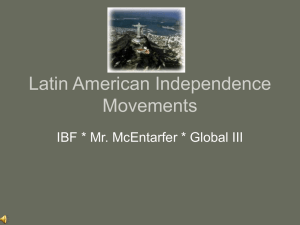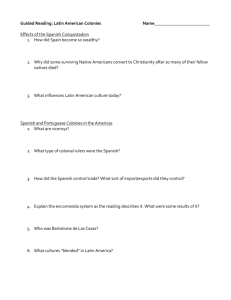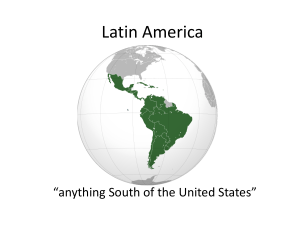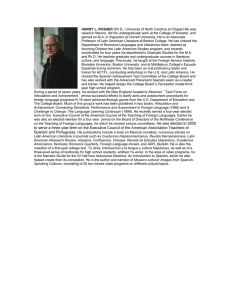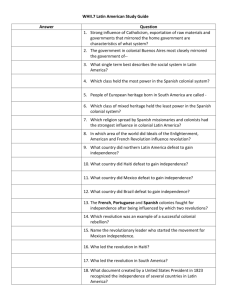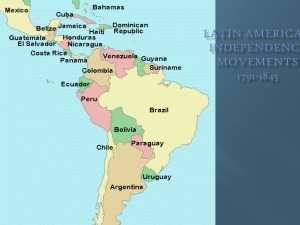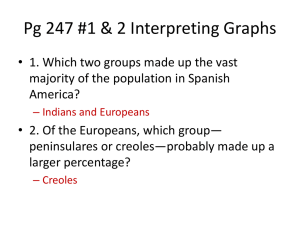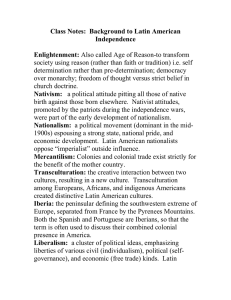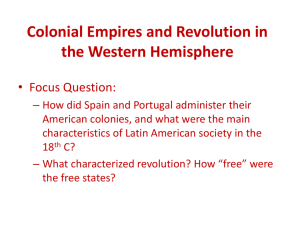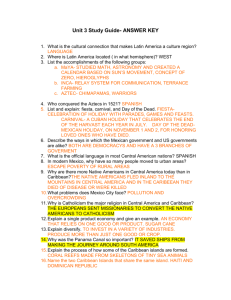Viewpoint Activity: Why Latin Americans Wanted Independence
advertisement
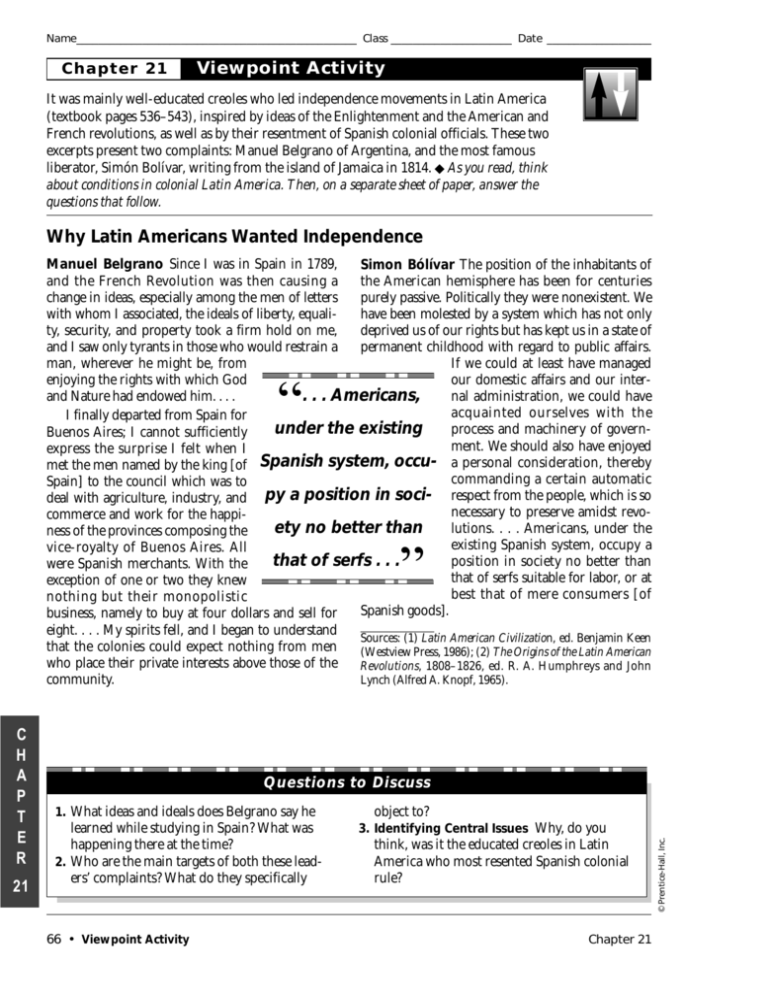
Name___________________________________________________ Class ______________________ Date ___________________ TEACHER Chapter 21 Viewpoint Activity It was mainly well-educated creoles who led independence movements in Latin America (textbook pages 536–543), inspired by ideas of the Enlightenment and the American and French revolutions, as well as by their resentment of Spanish colonial officials. These two excerpts present two complaints: Manuel Belgrano of Argentina, and the most famous liberator, Simón Bolívar, writing from the island of Jamaica in 1814. ◆ As you read, think about conditions in colonial Latin America. Then, on a separate sheet of paper, answer the questions that follow. Why Latin Americans Wanted Independence Manuel Belgrano Since I was in Spain in 1789, Simon Bólívar The position of the inhabitants of and the French Revolution was then causing a the American hemisphere has been for centuries change in ideas, especially among the men of letters purely passive. Politically they were nonexistent. We with whom I associated, the ideals of liberty, equalihave been molested by a system which has not only ty, security, and property took a firm hold on me, deprived us of our rights but has kept us in a state of and I saw only tyrants in those who would restrain a permanent childhood with regard to public affairs. man, wherever he might be, from If we could at least have managed enjoying the rights with which God our domestic affairs and our inter. . . Americans, and Nature had endowed him. . . . nal administration, we could have acquainted ourselves with the I finally departed from Spain for under the existing process and machinery of governBuenos Aires; I cannot sufficiently ment. We should also have enjoyed express the surprise I felt when I met the men named by the king [of Spanish system, occu- a personal consideration, thereby commanding a certain automatic Spain] to the council which was to py a position in socirespect from the people, which is so deal with agriculture, industry, and necessary to preserve amidst revocommerce and work for the happiety no better than lutions. . . . Americans, under the ness of the provinces composing the existing Spanish system, occupy a vice-royalty of Buenos Aires. All that of serfs . . . position in society no better than were Spanish merchants. With the that of serfs suitable for labor, or at exception of one or two they knew best that of mere consumers [of nothing but their monopolistic Spanish goods]. business, namely to buy at four dollars and sell for eight. . . . My spirits fell, and I began to understand Sources: (1) Latin American Civilization, ed. Benjamin Keen that the colonies could expect nothing from men (Westview Press, 1986); (2) The Origins of the Latin American who place their private interests above those of the Revolutions, 1808–1826, ed. R. A. Humphreys and John Lynch (Alfred A. Knopf, 1965). community. “ ” 21 Questions to Discuss 1. What ideas and ideals does Belgrano say he learned while studying in Spain? What was happening there at the time? 2. Who are the main targets of both these leaders’ complaints? What do they specifically 66 • Viewpoint Activity object to? 3. Identifying Central Issues Why, do you think, was it the educated creoles in Latin America who most resented Spanish colonial rule? Chapter 21 © Prentice-Hall, Inc. C H A P T E R
